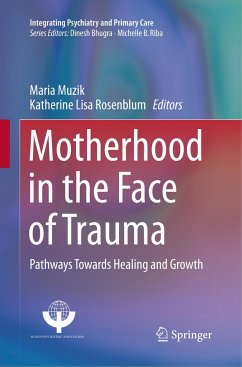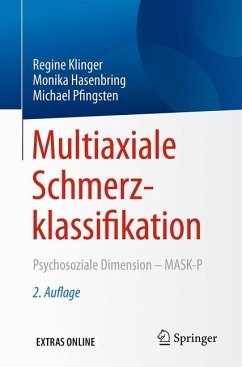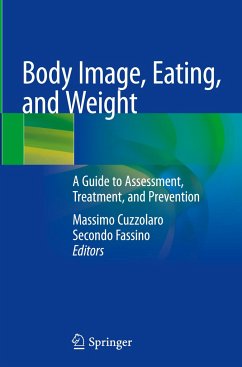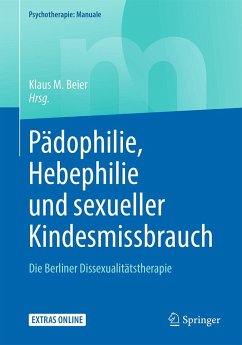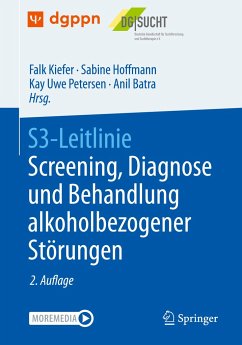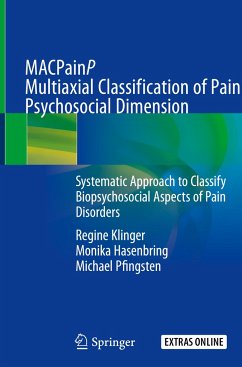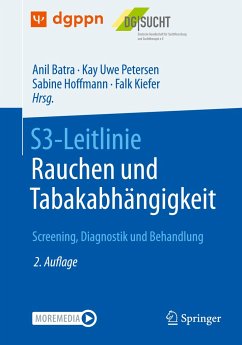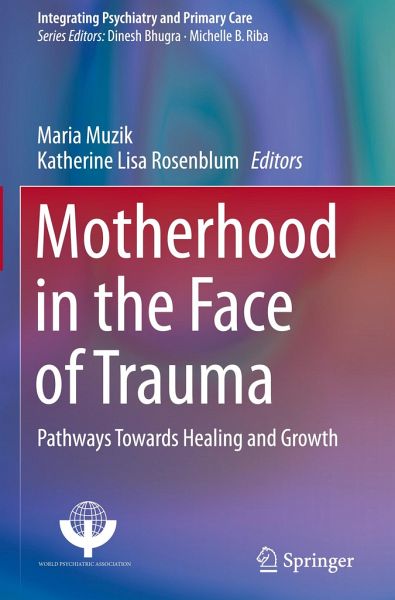
Motherhood in the Face of Trauma
Pathways Towards Healing and Growth
Herausgegeben: Muzik, Maria; Rosenblum, Katherine Lisa

PAYBACK Punkte
49 °P sammeln!
This volume offers an overview of the latest research on perinatal adaptation among women who have faced trauma, loss and/or adversity, both in childhood and/or as an adult, and describes the varied trajectories of adaptive and maladaptive coping that follow. The range of outcomes considered span from health-limiting (e.g. mental illness, substance use, unhealthy life style behaviours) to health-promoting (e.g. resilience and posttraumatic growth). These outcomes are examined both in relation to mothers' experience of motherhood and parenting, and with regard to their children's lives.Interper...
This volume offers an overview of the latest research on perinatal adaptation among women who have faced trauma, loss and/or adversity, both in childhood and/or as an adult, and describes the varied trajectories of adaptive and maladaptive coping that follow. The range of outcomes considered span from health-limiting (e.g. mental illness, substance use, unhealthy life style behaviours) to health-promoting (e.g. resilience and posttraumatic growth). These outcomes are examined both in relation to mothers' experience of motherhood and parenting, and with regard to their children's lives.
Interpersonal trauma, experienced in childhood and/or or adulthood, can have a profound effect on how women experience the transition into motherhood - from pregnancy, to childbirth, and postpartum caregiving. Women across the globe are exposed to high rates of interpersonal violence, and face the physical and emotional consequences of such events. The shift into motherhood is an emotionally evocative period in a woman's life, entailing not only challenges, but also the potential for healing and growth.
Individual chapters will present state-of-the-art research, and will also highlight the voices of women who have personally experienced trauma, illustrating the effects on their experiences as mothers. Throughout the book, the consistent emphasis is on clinical implications and on ways that providers can create a context for healing and growth with the help of current evidence-based and promising treatment methods.
Interpersonal trauma, experienced in childhood and/or or adulthood, can have a profound effect on how women experience the transition into motherhood - from pregnancy, to childbirth, and postpartum caregiving. Women across the globe are exposed to high rates of interpersonal violence, and face the physical and emotional consequences of such events. The shift into motherhood is an emotionally evocative period in a woman's life, entailing not only challenges, but also the potential for healing and growth.
Individual chapters will present state-of-the-art research, and will also highlight the voices of women who have personally experienced trauma, illustrating the effects on their experiences as mothers. Throughout the book, the consistent emphasis is on clinical implications and on ways that providers can create a context for healing and growth with the help of current evidence-based and promising treatment methods.



